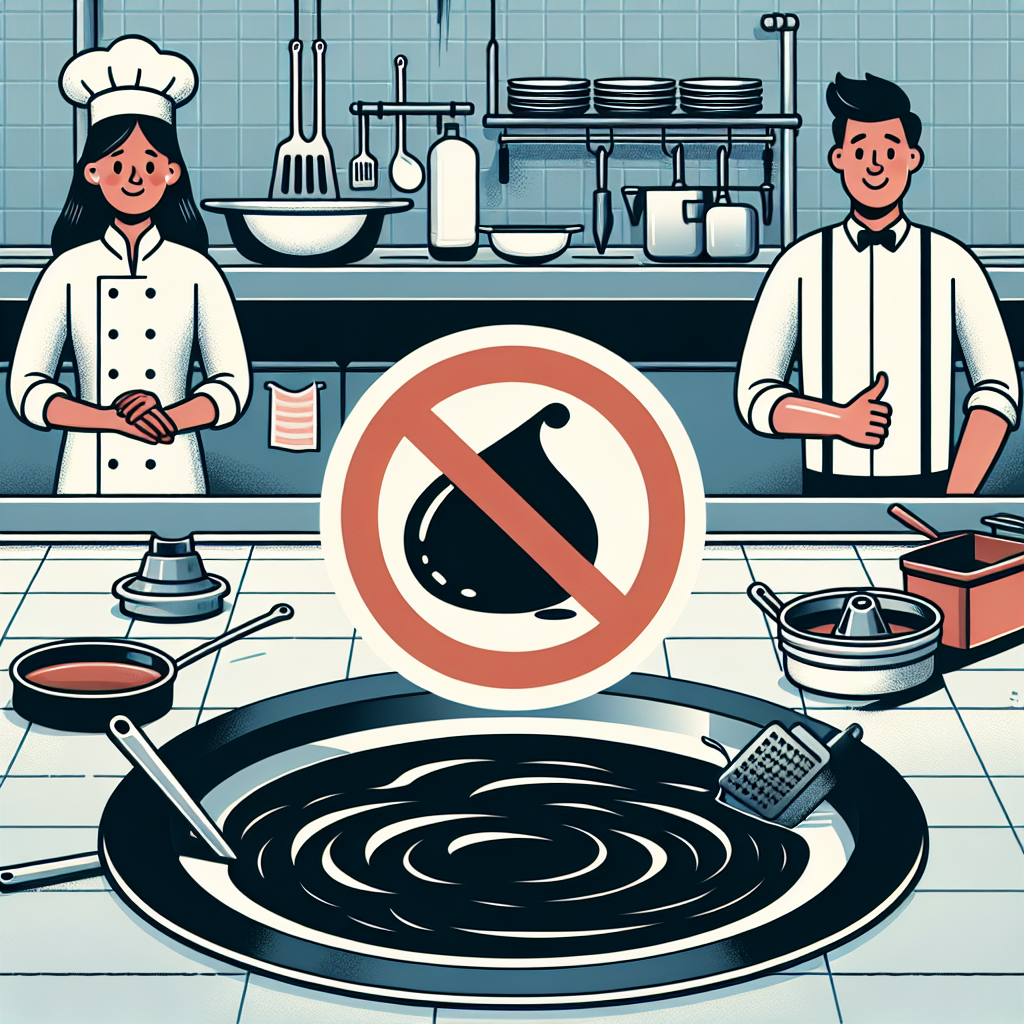In bustling commercial kitchens, grease buildup is an ever-present concern that can disrupt operations and lead to costly plumbing emergencies. Whether you’re managing a restaurant, a café, or any food service establishment, tackling grease accumulation in your drains is vital for maintaining a smooth workflow and ensuring safety. In this article, we’ll explore effective steps to prevent grease buildup in commercial drains and keep your kitchen running efficiently.
Understanding the Importance of Drain Maintenance
Before diving into prevention methods, it’s essential to understand why maintaining your drains is critical. Grease buildup can cause:
- Clogs and Blockages: Over time, grease can harden and combine with food particles, leading to dangerous clogs that can back up your entire system.
- Foul Odors: Stagnant water combined with organic matter produces unpleasant smells that can permeate your establishment.
- Health Risks: Clogged drains can lead to pest infestations and create unsanitary work environments.
Investing time and resources into preventing grease buildup not only helps your plumbing system but also upholds the integrity of your business.
Regular Cleaning Schedule
One of the best ways to keep your drains free from grease is to establish a routine cleaning schedule. Here’s how:
Daily Maintenance
- Wipe Down Surfaces: After every meal service, ensure that countertops, fryers, and cooking equipment are wiped down to remove grease splatters and residue.
- Dispose of Waste Properly: Encourage staff to scrape food waste into designated bins rather than rinsing food particles down the drain. This simple practice can significantly reduce grease buildup.
Weekly and Monthly Cleanings
- Deep Cleaning: Schedule deep cleaning sessions weekly or monthly, during off-peak hours. Use hot water and eco-friendly degreasers to tackle any accumulated grease in sinks and drains.
- Professional Services: Consider hiring a professional drain-cleaning service periodically to ensure a thorough job that can reach the depths of your plumbing system.
Install a Grease Trap
Investing in a grease trap is a game-changer for commercial kitchens. Here’s why:
What is a Grease Trap?
A grease trap is a device designed to intercept fats, oils, and greases (FOG) before they enter the drainage system. It works by allowing wastewater to cool, causing the grease to solidify and rise to the surface, where it can be easily removed.
Benefits of a Grease Trap
- Prevention of Blockages: By catching grease before it can enter your drainpipes, a grease trap significantly reduces the risk of clogs.
- Compliance with Regulations: Many municipalities require commercial kitchens to have grease traps. By installing one, you’re not just protecting your plumbing but also ensuring compliance with local health regulations.
Educate Your Staff
An informed staff is your first line of defense against grease buildup. Here’s how to educate and empower your team:
Training Sessions
Conduct regular training sessions on the importance of proper waste disposal and cleaning practices. Ensure that every team member understands the gravity of grease management and their role in maintaining drain hygiene.
Visual Reminders
Place clear signage near sinks and garbage disposal areas reminding staff to avoid pouring grease down the drain. Visual cues can reinforce proper practices in a busy environment.
Use Eco-Friendly Enzymatic Cleaners
Switching to eco-friendly enzymatic cleaners can have a remarkable impact on grease management in your commercial kitchen. These cleaners use enzymes to break down fats and oils, making them more manageable.
Advantages of Enzymatic Cleaners
- Non-toxic and Biodegradable: Unlike harsh chemical drain cleaners, enzymatic options are safer for both your staff and the environment.
- Continuous Action: Regular use can help prevent future grease buildup by breaking down residual grease that might linger in the drains.
Monitor Your Water Temperature
Temperature plays a crucial role in grease management in your kitchen. Remember these tips:
Hot Water Flushes
Periodically run hot water through your drains. This can help melt and flush away any grease that might be beginning to accumulate, keeping your pipes clean and clear.
Avoid Cold Water for Grease Disposal
Cold water solidifies grease. When disposing of greasy water, use hot water to lessen the chances of grease buildup in the pipes.
Conclusion: A Proactive Approach to Drain Maintenance
Preventing grease buildup in commercial drains doesn’t have to be a daunting task. By implementing regular cleaning routines, installing a grease trap, educating staff, using eco-friendly cleaners, and monitoring water temperatures, you can keep your drains flowing smoothly and maintain a healthy workplace.
Remember, a small investment of time and effort now can save you from major plumbing issues and costly repairs in the future. Prioritize drain maintenance, and your business will run like a well-oiled machine, free from the havoc that grease buildup brings.


